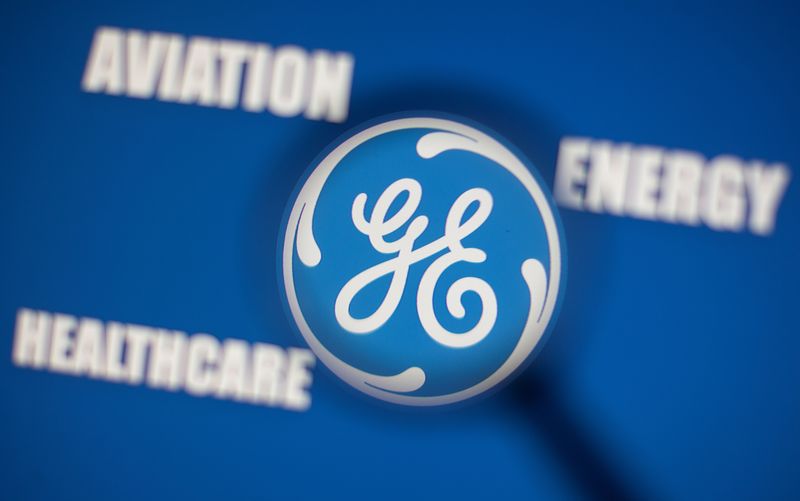By Rajesh Kumar Singh and Abhijith Ganapavaram
CHICAGO (Reuters) -General Electric on Tuesday completed its breakup into three companies, marking the end of the 132-year-old conglomerate that was once the most valuable U.S. corporation and a global symbol of American business power.
The industrial giant's aerospace and energy businesses began trading on the New York Stock Exchange as separate entities more than a year after GE spun off its healthcare business.
GE Aerospace has retained the GE symbol. The energy unit, GE Vernova, made its debut under the ticker symbol GEV.
GE Aerospace shares were up about 2% at mid-afternoon. Vernova rose about 5%.
The breakup culminates CEO Larry Culp's efforts to turn around a company that looked all but dead due to bad investments and the 2008 financial crisis that nearly bankrupted its most profitable business, GE Capital.
When Culp, the first outsider to run GE, took the helm in 2018, the company was struggling with weak profits and a mountain of debt. Its stock had fallen nearly 80% from highs in 2000 and lost its spot in the Dow Jones Industrial Average after over a century in the blue-chip stock index. The tumult prompted GE's board to oust two of his predecessors in less than two years.
Culp's task to save the struggling conglomerate became more challenging when its lucrative jet engine business fell victim to the coronavirus pandemic as global air travel dried up. However, his focus on paying off debt by selling assets and improving cash flows by streamlining operations and cutting overhead costs ushered in a recovery.
GE has slashed more than $100 billion of debt and quadrupled its free cash flow since 2018. Its market cap has grown by about $100 billion to $192 billion.
"With the successful launch of three independent, public companies now complete – today marks a historic final step in the multi-year transformation of GE," Culp said on Tuesday.
Culp, as the CEO of GE Aerospace, rang the NYSE opening bell on Tuesday, along with Vernova CEO Scott Strazik.
GE was formed in 1892 after famed inventor Thomas Alva Edison merged Edison General Electric (NYSE:GE) Co with a rival. In subsequent years, it has touched all parts of life - from bringing electricity to selling appliances to financing mortgages.
After the split, it will be left with its aerospace business, which makes engines for Boeing (NYSE:BA) and Airbus jets and generates more than 70% of its revenue from services.
Analysts estimate the market value of GE Aerospace at more than $100 billion after the spinoff. It is benefiting from a surge in demand for aftermarket services because jet delivery delays by Boeing and Airbus are forcing airlines to fly older planes for longer.

Last month, it forecast operating profit of about $10 billion in 2028.
"We expect GE Aerospace's engine business flywheel to spin off decades of profitable growth," Nicolas Owens, equity analyst at Morningstar, wrote in a note.